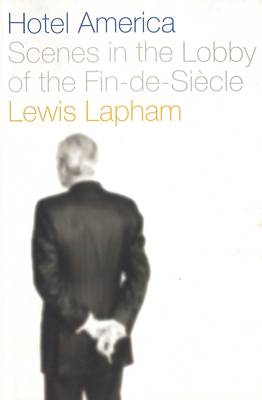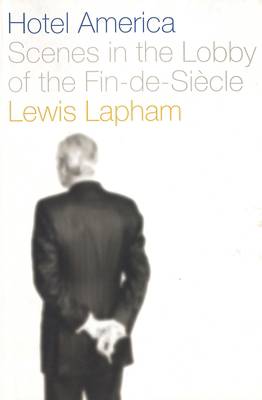
- Retrait gratuit dans votre magasin Club
- 7.000.000 titres dans notre catalogue
- Payer en toute sécurité
- Toujours un magasin près de chez vous
- Retrait gratuit dans votre magasin Club
- 7.000.0000 titres dans notre catalogue
- Payer en toute sécurité
- Toujours un magasin près de chez vous
Description
Winner of the 1995 National Magazine Award for Essays and Criticism, this work observes the spectacle of democratic life and values in our time, and asks who is signing in and who is checking out, of the American experiment at the "fin de siècle." Culled from Lewis Lapham's monthly "Notebook" column for Harper's magazine, these essays describe the period between the winter of 1989 and the spring of 1995 in which the American explaining classes were casting around for a national folktale to take the place of the communist conspiracy. In this book, Lewis Lapham draws a portrait of a society at a loss to know what to think or make of itself at the end of a century once defined as America's own. His observations speak to the moral and intellectual confusions visited upon the American ruling elites--in the media and the universities, as well as in business and government--during the years 1989-1995. The spectacle is both comic and sad, a march of folly that calls forth Lapham's range as an essayist. Lapham's sketches take as their occasions events as different from one another as the wars in Panama and the Persian Gulf, the apotheosis of Richard Nixon and the transfiguration of O.J. Simpson, the grim inspections of the American soul conducted by the agents of both the pious left (no smoking cigarettes, no dirty water in the swimming pools, condoms in the schools) and the zealous right (no serial murders in the movies, no lesbians in the army, prayer in the schools), the media's use of history as wallpaper and elevator music, the dwindling significance of President Clinton (vanishing as mysteriously as the Cheshire cat) and the bombastic arrival of Newt Gingrich ("a man for all grievances"), the practice of swindling the stockholders and the art of changing gossip into news.
Spécifications
Parties prenantes
- Auteur(s) :
- Editeur:
Contenu
- Nombre de pages :
- 378
- Langue:
- Anglais
- Collection :
Caractéristiques
- EAN:
- 9781859849521
- Date de parution :
- 17-10-95
- Format:
- Livre relié
- Format numérique:
- Genaaid
- Dimensions :
- 164 mm x 242 mm
- Poids :
- 798 g

Les avis
Nous publions uniquement les avis qui respectent les conditions requises. Consultez nos conditions pour les avis.






